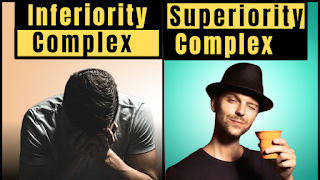Parasocial relationship: illusion of relationship.
PARASOCIAL RELATIONSHIP
A female fan
of Varun Dhawan threatened to kill his girlfriend Natasha Dalal outside his
residence The fan was waiting to meet Varun outside his house for a long time.
When the
security guard informed the fan that the actor won’t be able to meet her as he
is busy with his upcoming film’s promotion. She started creating ruckus outside
the actor’s house.
Security guards
informed to a news website that, she was waiting for the couple of hours. She was
insisting that she meet him then and there. He was pretty tired from the days
work and wanted to rest. She refused to leave and got into a squabble. Initially,
she said she will hurt herself. When the security still didn’t get her through
to Varun Dhawan, she threw a fit. She kept mumbling how she will harm Natasha.
Guys! This was
the scary example of parasocial relationship.
Parasocial relationship is conceptualized as an imaginary, one sided relationship or friendship a television viewers has with a mass communication “persona” or a “character”.
Although
parasocial interaction is based on a vicarious interaction (television viewing)
rather than the actual interaction. Viewer’s feel that they know and understand
the persona in a same intimate way they know and understand flesh-and-blood
friends.
The parasocial
relationship is based on a beliefs that the television personality is like
other people in the viewer’s social circle.
These
matters a lot especially in the current social media era, in which
consumer-celebrity interactions on social media have become more intimate,
open, reciprocal and frequent. Opportunities for interactions.
With celebrities in the past were rare and carefully controlled by the celebrities for publicity and promotion purposes. However social media have changed this one sided-relationship to a more interactive and reciprocal one. Celebrities willingly share on social media seemingly personal information with their audiences. In response, audiences “follows” their favorite celebrity 24*7 hours. This new media environments have narrowed the distance between the celebrity and audience.
In these relationships, some fans may suffer from the delusion that their idol celebrities are their friends. As social media has made parasocial interactions more accessible, the gap between the two parties has been reduced.But what these fans forget is that they are a largely unknown entity to the figures of their admiration. They also fail to notice that the celebrity image is carefully crafted in order to seem authentic, which can never represent one's entire personality. As a result, delusional fans may feel entitled over their favourite icon's personal lives. This extreme emotional dependency not only put strain financially on the fan affected, it can also ruin their interpersonal relationships. When an obsessive fan gives all of their attention to hero worship, there's hardly anything left for family and friends – relationships that are comparatively more balanced and fulfilling. It might give way to resentment and finally abandonment, leading the fan to become more dependent on the idolised human they obsess over.




Comments
Post a Comment